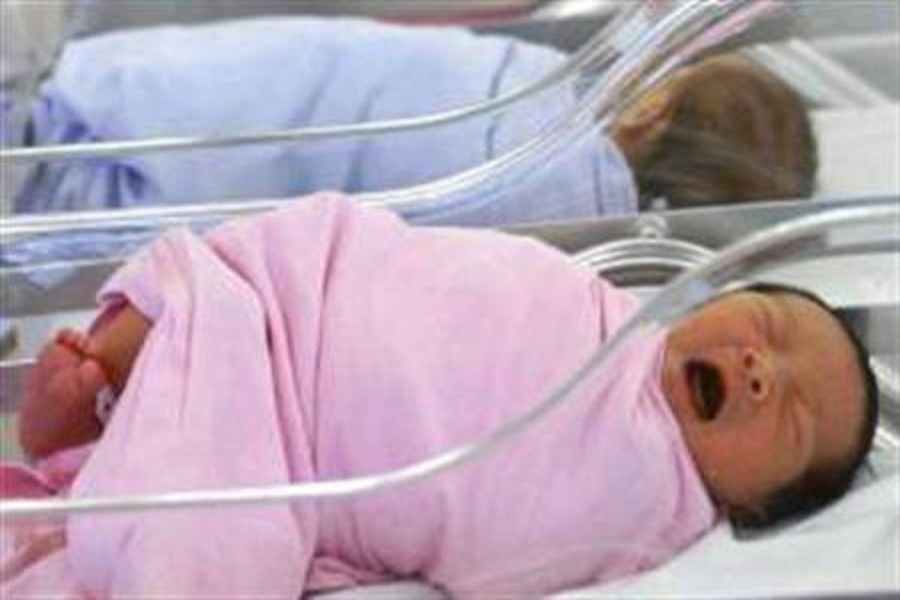Four o'clock in the morning is the time most babies are born spontaneously in England, with the majority arriving between 01:00 and 07:00, a study shows.
While planned C-section births tended to happen on weekday mornings, births after induced labours were more likely to occur around midnight.
Overall, more than 70 per cent of births took place outside regular working hours.
The analysis of five million births between 2005 and 2014 was carried out by University College London.
The researchers said there could be implications for staffing of midwives and doctors, with only 28% of births taking place between 09:00 and 17:00 on weekdays.
Since the 1950s, patterns of birth have changed because of rising rates of intervention, such as C-sections and inductions.
Prof Alison Macfarlane, research author from City, University of London, said that "current trends in obstetric intervention at birth may work in opposite directions".
With rates of induction rising, she said induced births were more likely to occur at night, while rates of pre-planned caesareans - which are also going up - are likely to be scheduled for morning hours.
She added that more home births could "lower rates of obstetric intervention and affect these trends and impact on the overall timing of birth".
Dr Peter Martin, lecturer in applied statistics at University College London, who was also part of the research team, said there could be an evolutionary reason for spontaneous births being concentrated at night.
"Our ancestors lived in groups that were active and dispersed during the day and came together to rest at night.
"So a night-time labour and birth probably afforded the mother and newborn baby some protection."
However, this doesn't explain why spontaneous birth numbers were 7.0 per cent lower on Christmas Day and Boxing Day.
More than just birth
Sean O'Sullivan, from the Royal College of Midwives, said the research would help maternity services to organise their staffing rotas but individual services would also need to look at the patterns of birth in their local areas.
He said the work of midwives encompassed more than just birth, including antenatal and postnatal care, infant feeding and maternal mental health, BBC reported.
"Any planning of services must consider also these aspects of care," he said.
Elizabeth Duff, senior policy adviser from the parent's charity NCT, said: "This study tells us parents aren't bothered about the timing of the birth as long as it results in healthy mums and babies.
"So it's worrying that induction appears to be timed so that the babies are most frequently born around midnight, when senior staff are less widely available to assist if complications arise."


